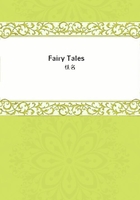
第6章
THIS story is from the sand-dunes or sand-hills of Jutland, but it does not begin there in the North, but far away in the South, in
Spain. The wide sea is the highroad from nation to nation; journey in thought; then, to sunny Spain. It is warm and beautiful there; the fiery pomegranate flowers peep from among dark laurels; a cool refreshing breeze from the mountains blows over the orange gardens, over the Moorish halls with their golden cupolas and coloured walls.
Children go through the streets in procession with candles and waving banners, and the sky, lofty and clear with its glittering stars, rises above them. Sounds of singing and castanets can be heard, and youths and maidens dance upon the flowering acacia trees, while even the beggar sits upon a block of marble, refreshing himself with a juicy melon, and dreamily enjoying life. It all seems like a beautiful dream.
Here dwelt a newly married couple who completely gave themselves up to the charm of life; indeed they possessed every good thing they could desire- health and happiness, riches and honour.
We are as happy as human beings can be," said the young couple from the depths of their hearts. They had indeed only one step higher to mount on the ladder of happiness- they hoped that God would give them a child, a son like them in form and spirit. The happy little one was to be welcomed with rejoicing, to be cared for with love and tenderness, and enjoy every advantage of wealth and luxury that a rich and influential family can give. So the days went by like a joyous festival.
"Life is a gracious gift from God, almost too great a gift for us to appreciate!" said the young wife. "Yet they say that fulness of joy for ever and ever can only be found in the future life. I cannot realise it!"
"The thought arises, perhaps, from the arrogance of men," said the husband. "It seems a great pride to believe that we shall live for ever, that we shall be as gods! Were not these the words of the serpent, the father of lies?"
"Surely you do not doubt the existence of a future life?" exclaimed the young wife. It seemed as if one of the first shadows passed over her sunny thoughts.
"Faith realises it, and the priests tell us so," replied her husband; "but amid all my happiness I feel that it is arrogant to demand a continuation of it- another life after this. Has not so much been given us in this world that we ought to be, we must be, contented with it?"
"Yes, it has been given to us," said the young wife, "but this life is nothing more than one long scene of trial and hardship to many thousands. How many have been cast into this world only to endure poverty, shame, illness, and misfortune? If there were no future life, everything here would be too unequally divided, and God would not be the personification of justice."
"The beggar there," said her husband, "has joys of his own which seem to him great, and cause him as much pleasure as a king would find in the magnificence of his palace. And then do you not think that the beast of burden, which suffers blows and hunger, and works itself to death, suffers just as much from its miserable fate? The dumb creature might demand a future life also, and declare the law unjust that excludes it from the advantages of the higher creation."
"Christ said: 'In my father's house are many mansions,'" she answered. "Heaven is as boundless as the love of our Creator; the dumb animal is also His creature, and I firmly believe that no life will be lost, but each will receive as much happiness as he can enjoy, which will be sufficient for him."
"This world is sufficient for me," said the husband, throwing his arm round his beautiful, sweet-tempered wife. He sat by her side on the open balcony, smoking a cigarette in the cool air, which was loaded with the sweet scent of carnations and orange blossoms.
Sounds of music and the clatter of castanets came from the road beneath, the stars shone above then, and two eyes full of affection- those of his wife- looked upon him with the expression of undying love. "Such a moment," he said, "makes it worth while to be born, to die, and to be annihilated!" He smiled- the young wife raised her hand in gentle reproof, and the shadow passed away from her mind, and they were happy- quite happy.
Everything seemed to work together for their good. They advanced in honour, in prosperity, and in happiness. A change came certainly, but it was only a change of place and not of circumstances.
The young man was sent by his Sovereign as ambassador to the
Russian Court. This was an office of high dignity, but his birth and his acquirements entitled him to the honour. He possessed a large fortune, and his wife had brought him wealth equal to his own, for she was the daughter of a rich and respected merchant. One of this merchant's largest and finest ships was to be sent that year to
Stockholm, and it was arranged that the dear young couple, the daughter and the son-in-law, should travel in it to St. Petersburg.
All the arrangements on board were princely and silk and luxury on every side.
In an old war song, called "The King of England's Son," it says:
"Farewell, he said, and sailed away.
And many recollect that day.
The ropes were of silk, the anchor of gold,
And everywhere riches and wealth untold."
These words would aptly describe the vessel from Spain, for here was the same luxury, and the same parting thought naturally arose:
"God grant that we once more may meet
In sweet unclouded peace and joy."